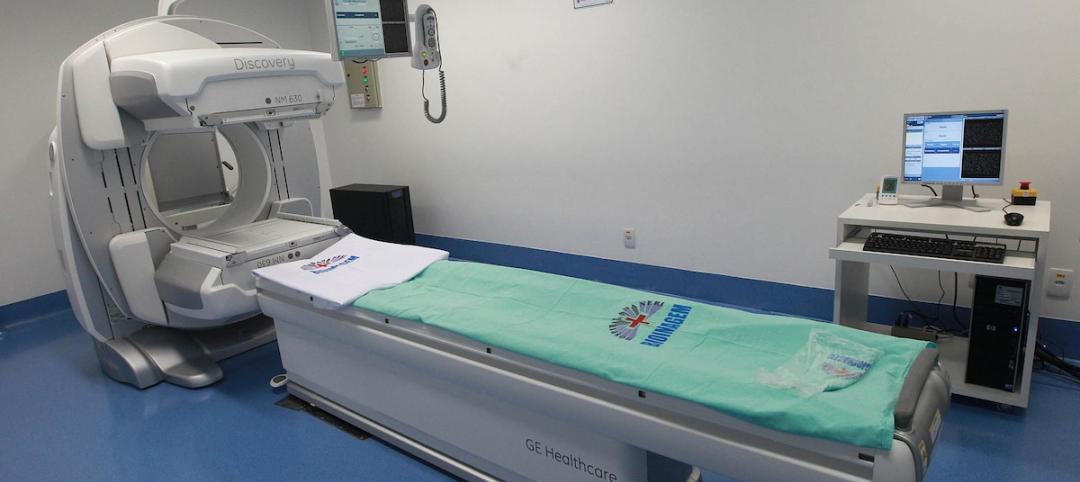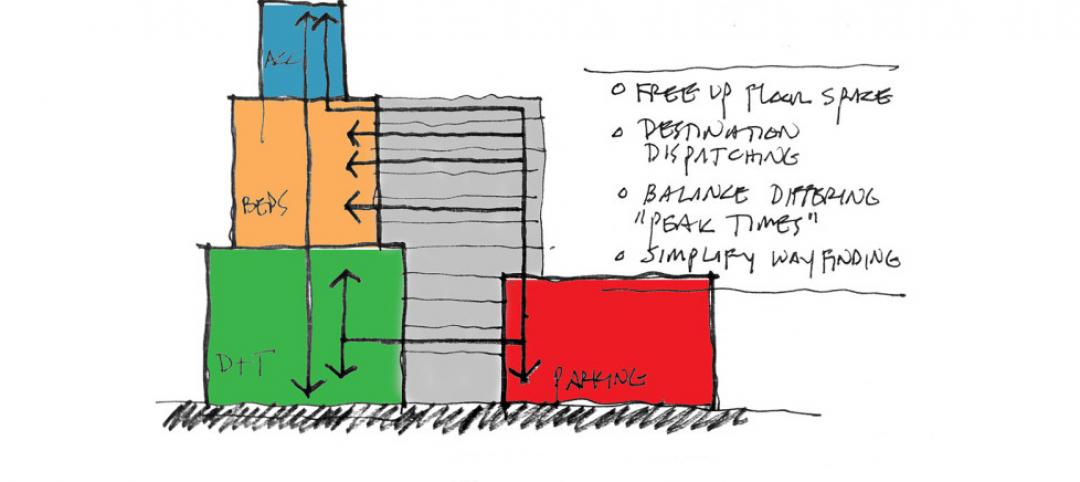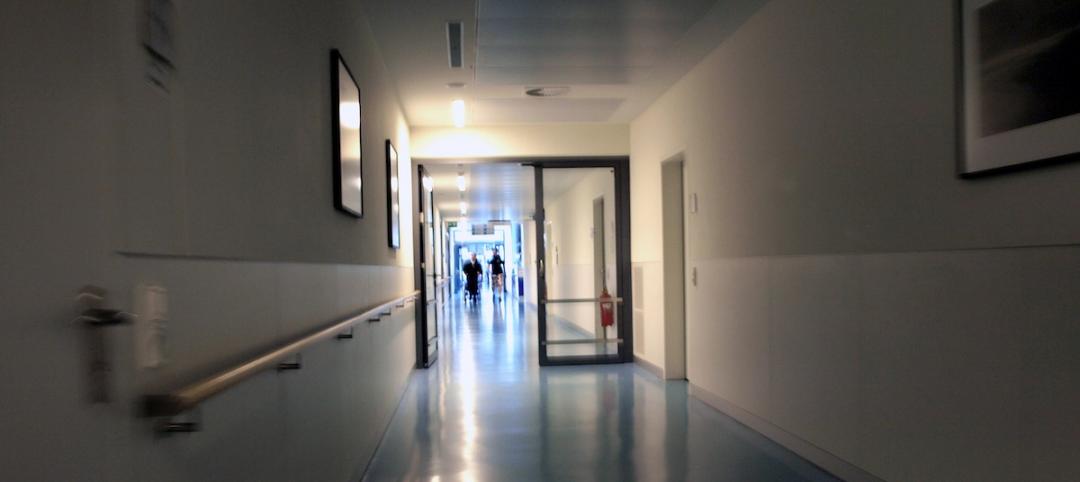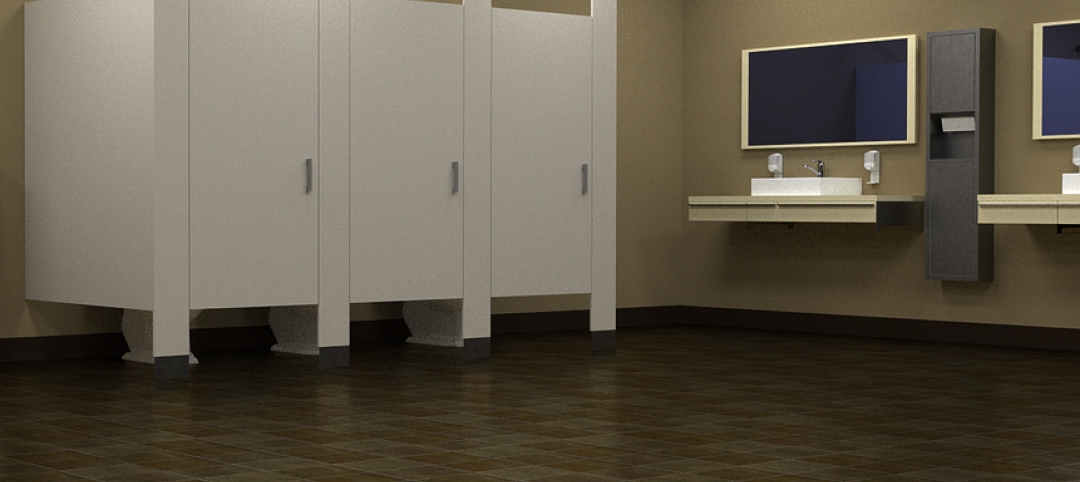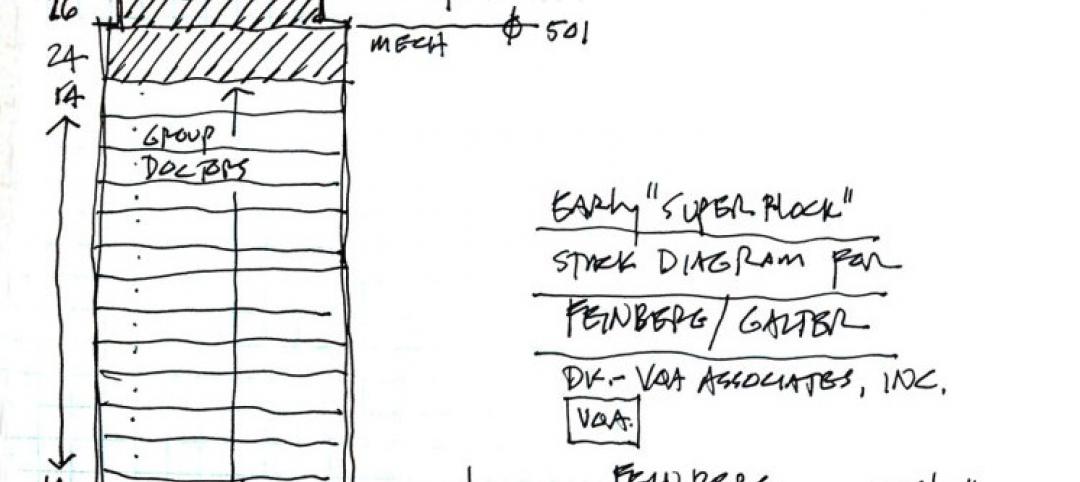Grumman/Butkus Associates (G/BA), a firm of energy efficiency consultants and sustainable design engineers, has released the results of its 2014 Hospital Energy and Water Benchmarking Survey, focusing on healthcare facilities’ resource usage trends and costs for calendar year 2013.
Since the survey was initiated 20 years ago, hospitals’ overall fossil fuel use has trended downward, but electricity use isn’t declining much. The average combined Btu/ft2 for facilities in the survey (electricity plus gas/steam) was 248,456, at a cost of $3.27/sf, compared with 235,731 Btu/sf and $3.09/sf in the 2013 survey (2012 data). Harsh Midwestern winter weather patterns undoubtedly had an adverse effect on energy consumption for hospitals participating in the 2014 survey.
Carbon footprint results have stayed fairly steady over time, at about 60 pounds of CO2 equivalent per sf per year. Water use is gradually declining, currently averaging just over 50 gallons per square foot per year (compared with nearly 70 gallons/sf/year a decade ago).
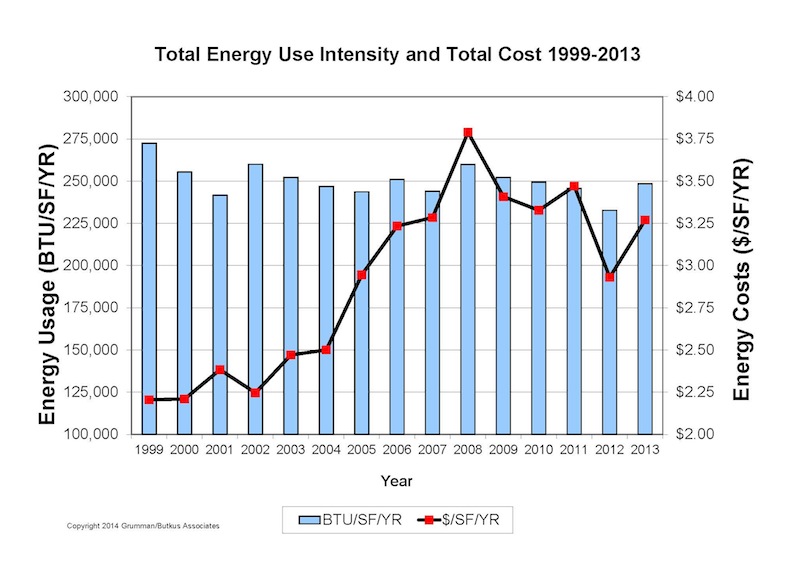 Hospitals’ energy costs per square foot (red boxes) have fluctuated greatly since 1999. Energy use intensity (Btu/sf/year) has drifted slightly downward but rose fairly sharply in 2013, probably due to inclement weather. ©2014 Grumman/Butkus Associates.
Hospitals’ energy costs per square foot (red boxes) have fluctuated greatly since 1999. Energy use intensity (Btu/sf/year) has drifted slightly downward but rose fairly sharply in 2013, probably due to inclement weather. ©2014 Grumman/Butkus Associates.
“Hospitals are under tremendous pressure to reduce operating costs,” says G/BA Chairman Daniel L. Doyle. “Reducing energy and water usage not only helps hospitals cut operating costs, but also helps them reduce the environmental impact of their operations.”
The survey has provided a free annual benchmarking resource since its initial release in 1995. Hospitals are invited to participate without charge by submitting responses to a short list of questions. Information for this edition, covering calendar year 2013, was provided by 102 hospitals located in Illinois (54), Wisconsin (29), Michigan (7), Minnesota (4), Indiana (3), and several other states.
“Hospitals have been investing in efficiency measures and making progress, but have much further to go," says Doyle “Electrical energy reduction measures such as lighting retrofits are being offset by the introduction of more and more electronic imaging equipment and fully digital recordkeeping. Though some of the low-hanging fruit is gone, there are still many cost-effective opportunities remaining for reducing energy usage and costs. The downward trend in water usage reflects a movement to eliminate city-water-cooled equipment, as well as the use of low-flow and occupancy-based plumbing fixtures. Again, there is still much room for improvement.”
Full results and analysis, as well as information about participating in the 2015 survey, are available at the firm’s website: http://grummanbutkus.com/why-we-excel/hospital-energy-water-survey. For additional information, contact Doyle (ddoyle@grummanbutkus.com) or Julie Higginbotham (jhigginbotham@grummanbutkus.com).
Related Stories
Building Team Awards | Apr 5, 2015
‘Project first’ philosophy shows team’s commitment to a true IPD on the San Carlos Center
Skanska and NBBJ join forces with Sutter Health on a medical center project where all three parties share the risk.
Healthcare Facilities | Mar 31, 2015
BIM and the changing procurement model for medical equipment in healthcare construction
BIM coordination has dramatically reduced change orders during the construction period. Unfortunately, it has had the opposite effect on medical technology integration, writes CBRE Healthcare's Julie Ford.
Healthcare Facilities | Mar 28, 2015
VA construction program ‘a disaster,’ says congressman
The VA construction program took more hits recently after the chairman of a congressional Committee on Veterans’ Affairs called an Aurora, Colo., hospital project “a disaster,” and a key VA official resigned abruptly.
Healthcare Facilities | Mar 23, 2015
Can advanced elevator technology take vertical hospitals to the next level?
VOA's Douglas King recalls the Odyssey project and ponders vertical transportation in high-rise healthcare design.
Healthcare Facilities | Mar 22, 2015
New Joplin, Mo., hospital built to tornado-resistant standards
The new hospital features a window and frame system that can protect patients from winds of up to 250 mph.
Healthcare Facilities | Mar 18, 2015
Healthcare design partnership asks: What about the doctor?
HDR's Abbie Clary discusses the design of healthcare facilities and how they affect doctors.
Healthcare Facilities | Mar 16, 2015
Healthcare planning in a post-ACA world: 3 strategies for success
Healthcare providers are seeking direction on how to plan for a value-based world while still very much operating in a volume-based market. CBRE Healthcare's Curtis Skolnick offers helpful strategies.
Retail Centers | Mar 10, 2015
Retrofit projects give dying malls new purpose
Approximately one-third of the country’s 1,200 enclosed malls are dead or dying. The good news is that a sizable portion of that building stock is being repurposed.
Codes and Standards | Mar 5, 2015
Charlotte, N.C., considers rule for gender-neutral public bathrooms
A few other cities, including Philadelphia, Austin, Texas, and Washington D.C., already have gender-neutral bathroom regulations.
Healthcare Facilities | Mar 1, 2015
Are you ready for high-rise hospitals?
The vertical hospital environment may be the wave of the future, but it is not without its design challenges.




